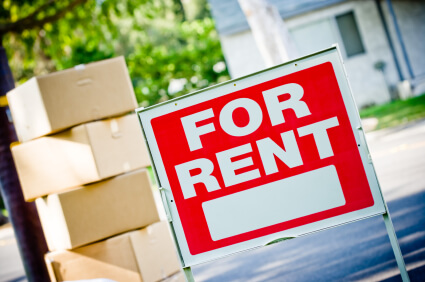
Moving out can be the best and worst time of your life. There are many ways that you can trip up when you are moving out on your own from your parent’s home for the first time. There are many financial mistakes when you are moving out on your own and moving out for the first time.
On one hand, you get unparalleled levels of freedom that you never had living with your parents. Stay up until 3am playing video games? Sure! Drink a cocktail or two after work or school? Why not?
But with great freedom comes great responsibility. And, if you’re not prepared, moving out on your own might end in you moving back with your parents. Here are a few financial mistakes you should watch out for when moving out:
Mistakes When Moving Out On Your Own
Poor Credit History
Searching for a condo or apartment in a good area with the amenities you want is difficult enough. But, if you have a poor credit history, then your applications might be rejected altogether.
Or, you may find yourself having to pay a large security deposit. A poor to bad credit score is anything less than 649. Some landlords might not even accept a “fair” rating in the 650-699 credit score range.
If you’re submitting multiple applications to multiple landlords in hopes of scoring an apartment, the constant credit checks will show up on your credit history and potentially lower your credit score. While many pings against your credit report often signal that you are shopping around for a loan and doesn’t hurt your credit score, this may not be the case when you are looking for a new apartment to rent.
When you have a bad or poor credit score, it may be better to wait and improve your credit score before moving out on your own or from your parents’ home. This way, you’ll not only be in a better spot financially, but you’ll be more likely to be approved by landlords’ credit checks.
Skipping a Thorough Apartment Walkthrough
If you’re ready to move out as soon as possible, this excitement might lead to reckless decision-making if you’re not careful. For instance, if you qualify for an apartment, it might be tempting to take the first one available without going through and checking everything to make sure it’s the right place for you.
I’ve done this before myself after years of living on my own. I wanted to move into a certain apartment complex and had to settle on a certain apartment on a floor and in a building that I didn’t want to live in. It was the cost of moving in fast.
It’s another example of the three-legged stool. Typically, goods and services that we buy will have two of the three: good, fast, and cheap.
There are multiple apartment walkthrough checklists available online to help you through the process. Most apartment complexes and landlords have something similar on their own. You should be wary of any landlord who is hesitant to give you the full opportunity to walk through your new pad.
Some things to look out for include:
- Functioning appliances
- Location of washer and dryer
- Noisy/messy neighbors
- Parking availability
- Mold or mildew, especially in the bathroom
- Working plumbing
- Outside noise (close to a busy road or airport?)
It is often a good idea to visit potential apartment complexes and neighborhoods that you are considering at all hours of the day. One place may look great during the daylight, but then you will find that it comes alive and is a very different location at night.
If you don’t go through the apartment before signing the lease, you could run into financial problems later. And, you could be held liable for repairs, repainting, or even the costs of moving out early if you can’t stand your neighbors.
Forgetting to Pay Utilities
Once you have your own place and you’re settling down, it can be very easy to forget to pay utilities. You might be used to your parents handling all the utility bills. For the first time in your life, after moving out for the first time, you will find yourself having to handle the gas, water, electricity, trash, internet, and cable bills. It’s not hard. It’s just something else to get used to and remember to do.
To help you remember, either get a whiteboard to write down important due dates and hang it in a visible location in the kitchen. Or, get an app like Mint, which will send you regular reminders for when your bills are due. I also set alerts using the Wunderlist app on my smartphone.
Wunderlist is amazing! If you’ve never used it, I would highly recommend checking it out. I use it to keep track of bills due, invoices to be paid, blogging tasks, and even which restaurants to check out around my hometown. It’s great!
Also, if you’re in a lower income bracket, you might qualify for utility subsidies offered through your city or county. So, be sure to scope out all your options to lower your bills.
No Backup Emergency Fund
If you sign an annual lease, then you are now financially liable to pay rent for twelve months. That may not sound like a big deal, but it’s probably more than what you’re paying your parents. And, if something happens – suddenly laid off, an unexpectedly large expense that eats up your rent money, etc. – then you may find yourself scrambling for cash to avoid eviction.
To avoid the headache and anxiety of not having enough money to pay rent in a given month, consider saving up 1-2 months’ rent before moving out so you’ll be covered in case of an emergency. Landlords are less forgiving about missed payments than your parents are, so it’s best to plan for the worst and hope for the best.
You need a fully funded emergency fund of six to twelve months of living expenses. I know that may seem like a large amount, especially when you are starting out. You should consider working through Dave Ramsey’s Baby Steps.
Baby Step 1 is to save $1,000 in an initial emergency fund. Baby Step 3 is to have a fully funded emergency fund, which is crucial for renters and young adults moving out of their parent’s homes for the first time.
Are you on your own for the first time? Have you made mistakes after moving out on your own from your parent’s house? Which mistakes were the hardest? How did you overcome them?



Thank you so much Hank for the wonderful advice on the mistakes made when moving out of your own.Truly living on your own is a great responsibility and preparation is everything….You’d rather plan longer than moving out in the shortest period of time, without checking some important things.
I’ve read so many articles on moving out fofor the first time, mistakes to avoid, tricks to know, etc. And I’m so proud that I’m so prepared because out of maybe 10 articles there may only be 1 thing I didn’t know or didnt prepare for. I’m moving out on my own in about 7-9 months with a responsible roommate whom is a close friend I’ve known for 3+years. It’s not impossible to move out at 18!